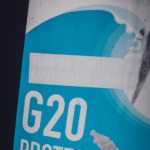The covid-19 pandemic has generated severe health, economic and debt crises for the least developed countries (LDCs). On the one hand, they cannot mobilise sufficient financial resources on their own to cope with the effects of the pandemic because their public revenues are too low and external finance is not always available. On the other hand, many LDCs have been highly indebted, even prior to the crisis. Of the 45 LDCs covered by the Debt Sustainability Framework of the World Bank and International Monetary Fund, five were in debt distress and thirteen more were classified at high risk of debt distress. In this context, the G20 members hold a strong responsibility to support and identify innovative mechanisms to mobilise financial resources for the LDCs. The G20 could play a key role in bringing forward a more effective architecture for development finance: blended finance, special drawing rights reallocation and sustainable bonds.
Read the full paper here.
This publication first appeared on the IAI site.
Authors: Kathrin Berensmann, DIE.
Photo by Nick Bolton on Unsplash.
The views are those of the authors and not necessarily those of ETTG.
Related posts:
 Supporting the Global South in tackling climate change: where is the G20 heading?
Supporting the Global South in tackling climate change: where is the G20 heading?
 Supporting developing countries for a global sustainable recovery: lessons from the Italian G20 Presidency
Supporting developing countries for a global sustainable recovery: lessons from the Italian G20 Presidency
 Implications of COVID-19 and Russia’s war in Ukraine for EU-Africa relations – Development finance
Implications of COVID-19 and Russia’s war in Ukraine for EU-Africa relations – Development finance
 The Covid-19 Crisis and the Mediterranean Basin: Overcoming Disparities, Promoting Genuine Cooperation
The Covid-19 Crisis and the Mediterranean Basin: Overcoming Disparities, Promoting Genuine Cooperation

